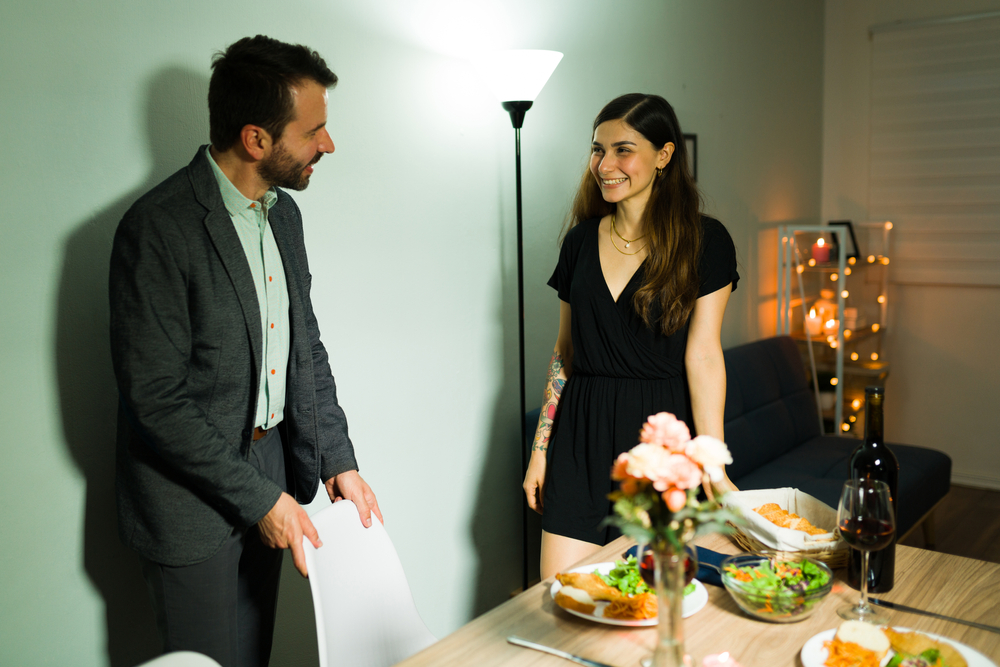If you’re in the dating scene, it might seem impossible to closely connect with someone, or even (dare we say it) fall in love.
It takes time, effort, and of course, dedication to be with someone and truly learn everything about them.
Some married couples might have spent years with their loved ones before ever knowing who they really married!
Fortunately, there’s a way to make sure a relationship grows and blossoms by first engaging in a foster relationship.
The definition of “foster” means to encourage or promote development. Think of a mother and father fostering a young boy or girl known as foster children.
Just like a fostering relationship between a parent and a child, you can also have a foster relationship with your partner or loved one.
Foster relationships can be incredibly rewarding, and they allow you to really understand your partner before committing to a serious relationship.
Although foster relationships are different for everyone, foster relationships all involve nurturing someone, taking things slowly, having mutual respect for each other, and being able to set goals for your relationship.
Table of Contents
Nurturing your partner

Nurturing your relationship with your partner does not mean healing them. It’s important to understand the difference, as trying to heal someone can sometimes lead to more harm than good.
For instance, if you’re trying to “fix” someone that has mental, emotional, relationship, or other issues, it can be incredibly time-consuming and even painful for you to spend time trying to fix them.
Only a trained therapist is able to dedicate enough time and energy to help people with unresolved trauma, psychological, or emotional issues.
Although there are things you can do to help, such as:
- Being supportive
- Asking how you can help
- Listening to your partner
- Engaging in communication skills
- Learning to love their flaws
These only scratch the surface of what your partner really needs to heal all the way. Trying to “fix” as opposed to nurture someone during a relationship can lead to issues such as co-dependency.
Co-dependent partners oftentimes put their partner’s needs before their own. This can lead to low self-esteem and feelings of worthlessness.

People who are co-dependent can also have difficulty communicating what they really feel. This can often make them vulnerable to abuse and other issues.
In a fostering relationship, you start by nurturing someone as opposed to fixing them. Think about a flower that is dead from its roots.
No matter how many times you try to prop the flower up, it ends up falling over and will continue to do so until you replant a new flower and pot some new soil.
Once you plant a new flower and pot new soil, you can nurture it by feeding it plant food, watering it, and making sure its soil is nutrient-rich.
Much the same, by nurturing your relationship, you can support your partner during their healing process.
This can be done through communication and active listening, as well as being present for their endeavors.
Taking time with the relationship
Some relationships can take only months or even weeks to blossom and lead to full-on long-term marriages.
However, most foster relationships will have to take time to fully reach their maximum potential. This is because a foster relationship has set boundaries that you should follow with your partner.
For instance, you and your partner might be in a foster relationship where your friendship means more than your status as a couple.
You could choose to view your relationship differently than the traditional boyfriend-girlfriend model, and that’s okay as long as you both agree to this.

Because you and your partner are focusing on getting to know each other better and supporting your life goals, even intimacy might get put on the back burner in a foster relationship.
Again, this is okay as long as you choose to maintain this boundary equally.
As you can see, with so many boundaries and different goals in a foster relationship, it can take some time before you and your partner make things “official”.
If you are looking for a relationship where your partner is 100% ready to commit, then a foster relationship might not be the right choice for you.
Knowing what your goals are
Just like you set goals for your finances, your career, or even your family, setting goals for a relationship is incredibly important.
Setting goals in a relationship allows you and your partner to be able to work on the same aspects of the relationship without wondering if the other partner is putting in any effort at all.
Setting goals can look different for every relationship. In a foster relationship, you can choose to set goals such as:
- Learning to embrace each other’s flaws
- Letting go of past trauma
- Learning to be vulnerable with each other
- Working toward living together
- Finding a partner who shares finances and bills
- Marriage
- Being Long-term partners
Learning to let go

Unfortunately, unlike most relationships, foster relationships might begin with an end goal in mind – letting the other person go.
Just like foster parents might one day have to let go of the child they are raising, your partner in your foster relationship might already have told you they’re not interested in developing something long-term.
This isn’t necessarily a bad thing! Learning to accept that the relationship is not permanent can help save you from heartbreak in the long run.
It can also allow you to remain friends with someone or help them during their road to recovery without being too heavily invested in the relationship.
In some cases, you can take a break and then come back to each other when you are both ready to move from a foster relationship to a real relationship.
Taking a break can allow you both to do some much-needed soul searching and take time for yourselves.
They can also strengthen the relationship so long as you set some boundaries beforehand.

However, if you know this is a relationship that will never lead to anything more, examine how comfortable you are with a foster relationship and if it aligns with your goals.
Final Thoughts
Being in a foster relationship can be a great opportunity to learn more about yourself and help your partner truly care for you without being scared of commitment.
Once you feel ready to take things further – or break apart – you can be ready for whatever relationship type suits you.




